Why the government should be funding mass scientific studies of Ecstasy, magic mushrooms, and LSD
The U.S.'s model for drug development is broken. Here's how to fix it.


A free daily email with the biggest news stories of the day – and the best features from TheWeek.com
You are now subscribed
Your newsletter sign-up was successful
Medical drugs are pretty nice. From antibiotics to chemotherapy to good old aspirin, not a day goes by that millions of people don't benefit from pharmaceutical medicine — even granting the occasional disaster.
But the American model of drug development is badly flawed. We use a patent system, so new drugs that make it through the approval process can enjoy a government-granted monopoly to make back the initial investment. But for treatments in which the patent doesn't work — either because the drug won't be widely used, or because it is already in the public domain — our system comes up short. Two recent stories, regarding antibiotics and psychedelics, including LSD and Ecstasy, illustrate the problem, as well as the solution.
Undoubtedly the more serious problem is with antibiotics, which are basically the foundation of modern medicine. Without them, there would be no transplant surgery and very little cancer treatment. Pneumonia and tuberculosis would kill millions yearly. Minor cuts and scrapes would again be potentially life-threatening — antibiotic-resistant infections already kill 23,000 people in the U.S. alone every year.
The Week
Escape your echo chamber. Get the facts behind the news, plus analysis from multiple perspectives.

Sign up for The Week's Free Newsletters
From our morning news briefing to a weekly Good News Newsletter, get the best of The Week delivered directly to your inbox.
From our morning news briefing to a weekly Good News Newsletter, get the best of The Week delivered directly to your inbox.
Furthermore, our current stock of antibiotics is being eclipsed by bacterial evolution, which makes diseases more resistant to drugs. Meanwhile, new antibiotic discoveries have been quite thin on the ground in recent years. That's why the potential discovery of a new antibiotic from a soil sample made headlines across the globe. Though it still has to make it through a slew of scientific hurdles to prove it's safe for humans (and the odds are very much against it), it would be the first new antibiotic in years.
There are many reasons for this dearth of discovery. But as Kevin Outterson points out, the patent model greatly exacerbates the problem. Any new antibiotic approved for use in humans will be immediately and rightly seized by the medical profession to make sure society can get the longest possible use out of it. Especially at first, prescriptions — and therefore drug company revenues — would be sharply limited. Indeed, over-marketing of antibiotics is a big part of what caused the resistance crisis in the first place. That, in turn, makes drug companies more reluctant to invest in new antibiotic research.
A different problem is when a potential medical use for a substance is found, but its patent has already lapsed. Any public-domain compound still has to undergo the studies to get FDA approval; but without the monopoly profits, no drug company will bother doing that science.
Psychedelics, such as psilocybin (one of the active ingredients in magic mushrooms) and LSD, are currently stuck in this limbo. As Michael Pollan details in a riveting and brilliant piece for The New Yorker, the science on psychedelics is making a comeback. After the 1960s, there was a decades-long crackdown on such research, sparked by irresponsible grandstanding by clowns like Timothy Leary on the one hand, and a far worse overreaction and backlash in mainstream society on the other. But in recent years, a dedicated group of researchers has been producing some solid research on various psychedelic compounds.
A free daily email with the biggest news stories of the day – and the best features from TheWeek.com
Though still preliminary, the results are nothing short of astounding. Whether it's MDMA (the active ingredient in Ecstasy) used to treat PTSD among veterans, or LSD used to treat anxiety and depression among the terminally ill, or psilocybin used to treat addiction, studies employing ordinary, conservative scientific techniques are finding hugely positive results.
The problem is that large-scale studies are needed to obtain final FDA approval, which makes them very expensive. Here's Pollan:
Recruitment is only one of the many challenges facing a Phase III trial of psilocybin, which would involve hundreds of patients at multiple locations and cost millions of dollars. The University of Wisconsin and the University of California, Los Angeles, are making plans to participate in such a trial, but F.D.A. approval is not guaranteed. [The New Yorker]
No drug company would waste money on those studies. It would be financially irresponsible.
So what is to be done? First, direct government funding is and always has been an important part of scientific funding. In a sane world, with substances as promising as the above psychedelics, the government would simply fund the research itself and be done with it. Only an increasingly anachronistic brand of drug warrior politics stands in the way. But with something like 22 veterans per day committing suicide, any treatment with a potential 60+ percent long-tem cure rate for PTSD ought to be jammed through mass trials at the highest possible speed.
Second, the patent model could be altered or abolished altogether. As Dean Baker and others have proposed, a prize fund might be set up, by which the government would propose various desired treatments, with the winnings given out to any drug that makes it through the FDA's approval process (which should be streamlined itself, but that's another post). A new broad-spectrum antibiotic might be awarded $20 billion, which would then pass into the public domain so it could be available at low cost.
It's important to note that, contrary to certain conservative objections, this would only be changing, not increasing, the government's involvement in the drug market. Arguably, setting up a prize fund would involve less such intervention, since there would be fewer government-granted market monopolies.
At any rate, there are many other options we might consider. But the important thing to remember is that when it comes to medical science, there's simply no getting around government involvement — and we could be doing ours a lot better.
Ryan Cooper is a national correspondent at TheWeek.com. His work has appeared in the Washington Monthly, The New Republic, and the Washington Post.
-
 Quiz of The Week: 14 – 20 February
Quiz of The Week: 14 – 20 FebruaryQuiz Have you been paying attention to The Week’s news?
-
 The Week Unwrapped: Do the Freemasons have too much sway in the police force?
The Week Unwrapped: Do the Freemasons have too much sway in the police force?Podcast Plus, what does the growing popularity of prediction markets mean for the future? And why are UK film and TV workers struggling?
-
 Properties of the week: pretty thatched cottages
Properties of the week: pretty thatched cottagesThe Week Recommends Featuring homes in West Sussex, Dorset and Suffolk
-
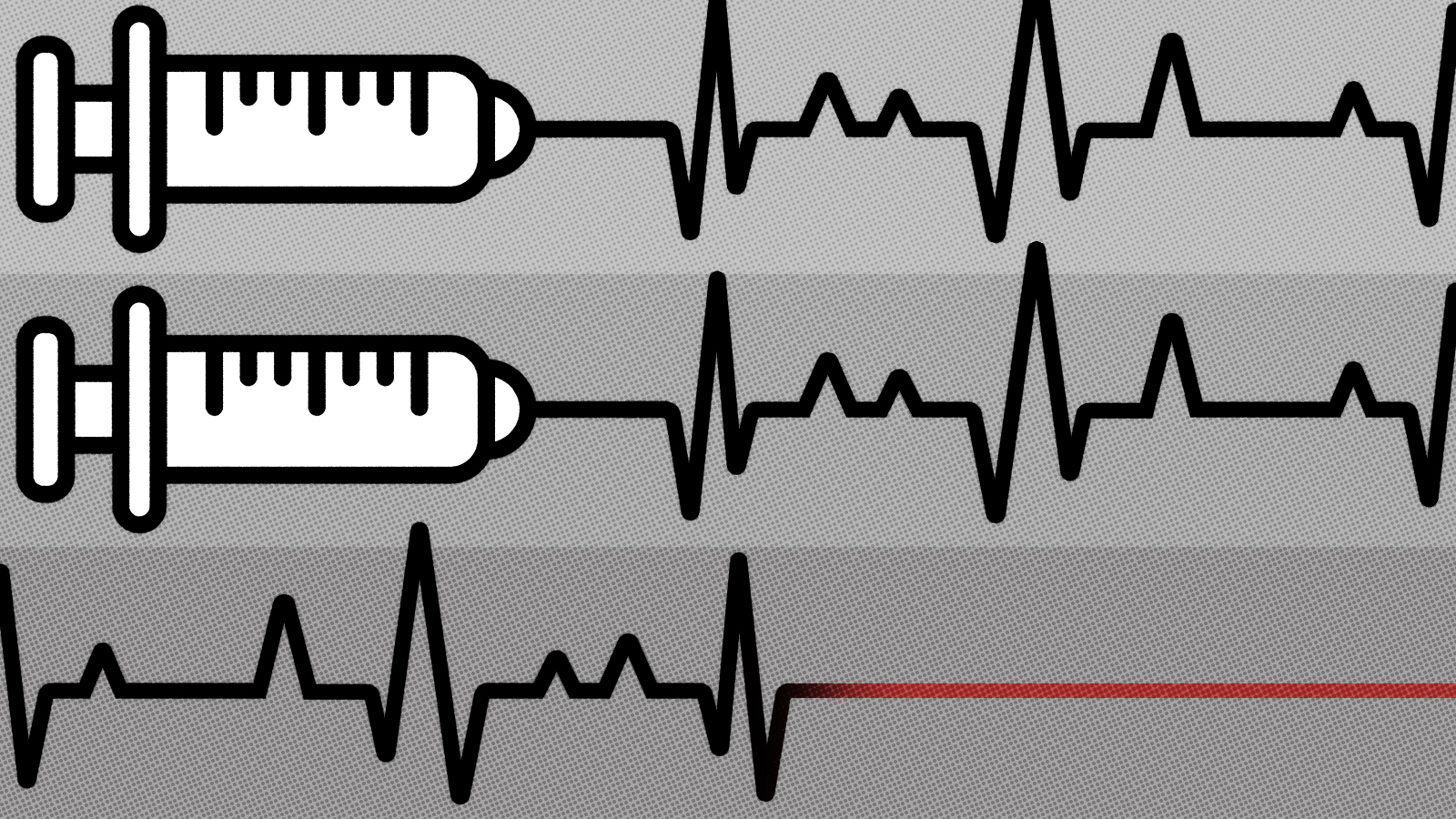 Do unvaccinated COVID patients deserve scarce care? A doctor weighs in.
Do unvaccinated COVID patients deserve scarce care? A doctor weighs in.The Explainer Justice, judgment, and the last ICU bed
-
 How to vaccinate the anti-vaxxers
How to vaccinate the anti-vaxxersThe Explainer Instead of blaming people for not doing the right thing, let's focus on eliminating the obstacles to vaccination that still remain
-
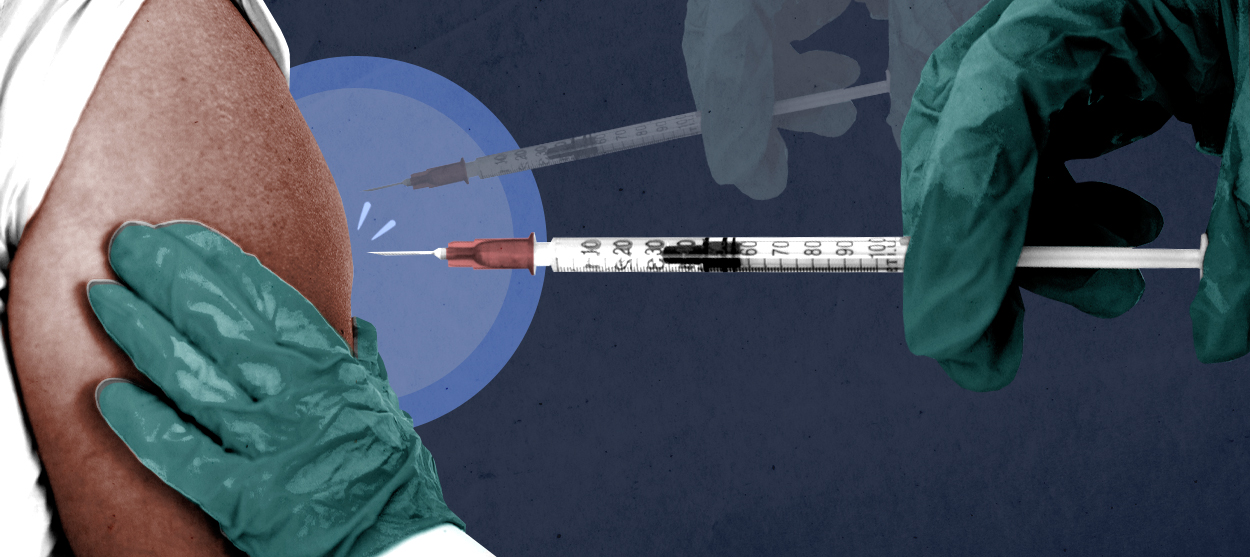 The U.S. could double its COVID-19 vaccine availability overnight. What's the holdup?
The U.S. could double its COVID-19 vaccine availability overnight. What's the holdup?The Explainer How the FDA could approve a more efficient vaccine rollout
-
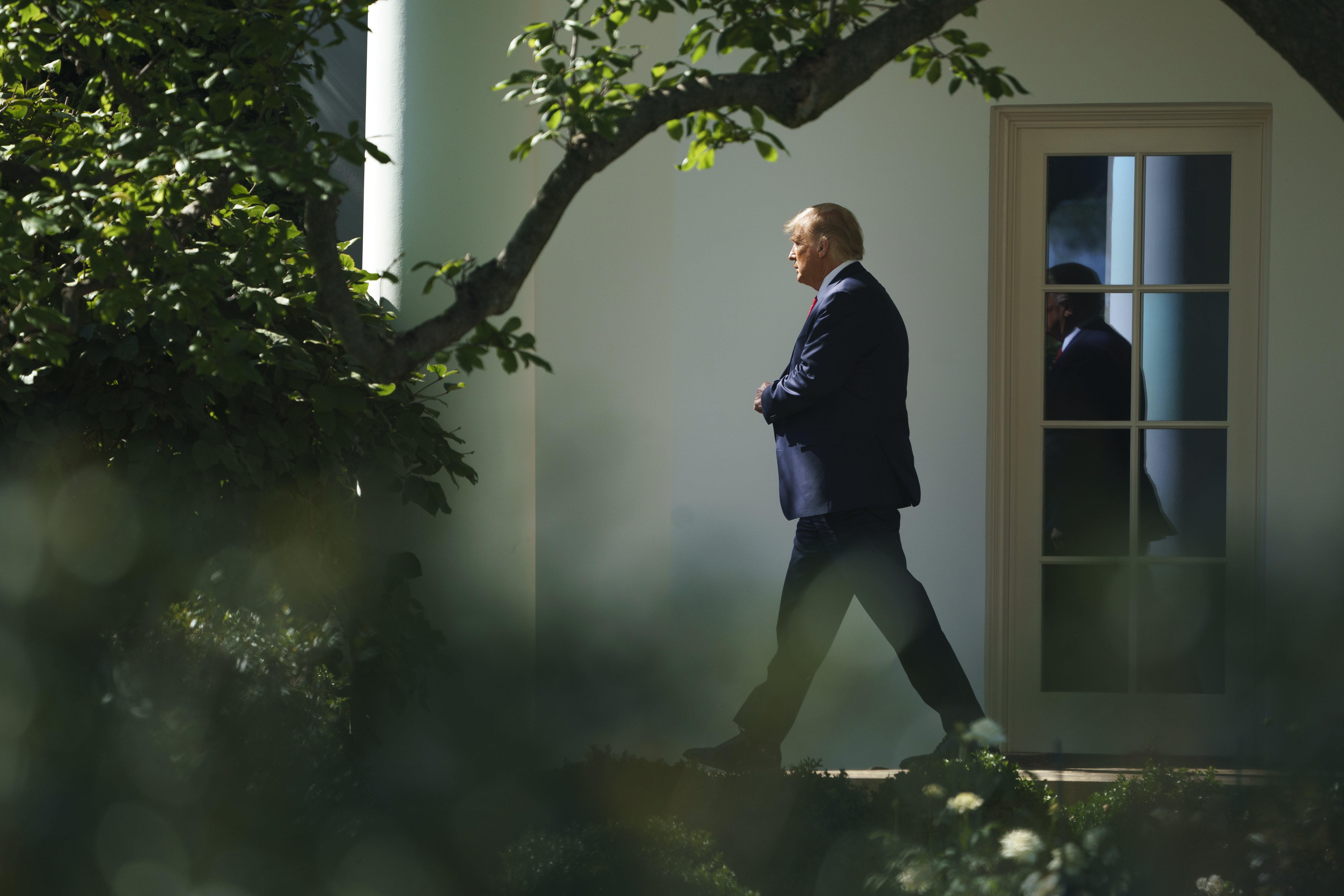 The October Surprise nobody wanted
The October Surprise nobody wantedThe Explainer Trump has COVID-19. Really, 2020?
-
 Life is worth living
Life is worth livingThe Explainer What's driving America's rising suicide rate?
-
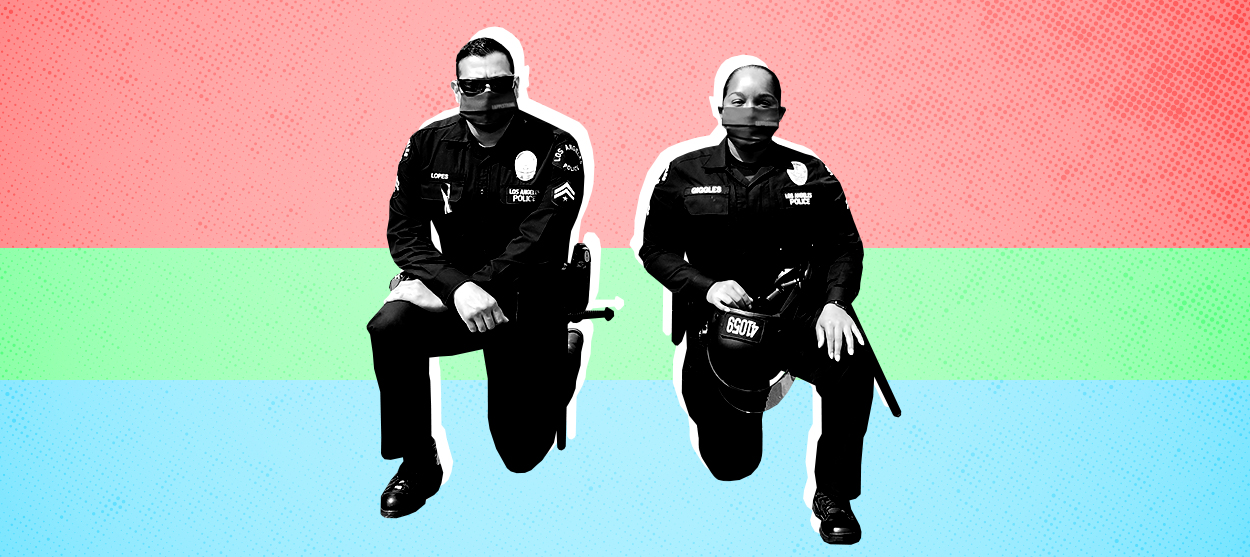 Social workers are masters at de-escalation. Here's what the police can learn from them.
Social workers are masters at de-escalation. Here's what the police can learn from them.The Explainer Knowing how to peacefully resolve conflict, rather than exacerbate it, can save lives
-
 Settling in for the long pandemic
Settling in for the long pandemicThe Explainer Life won't be back to "normal" anytime soon
-
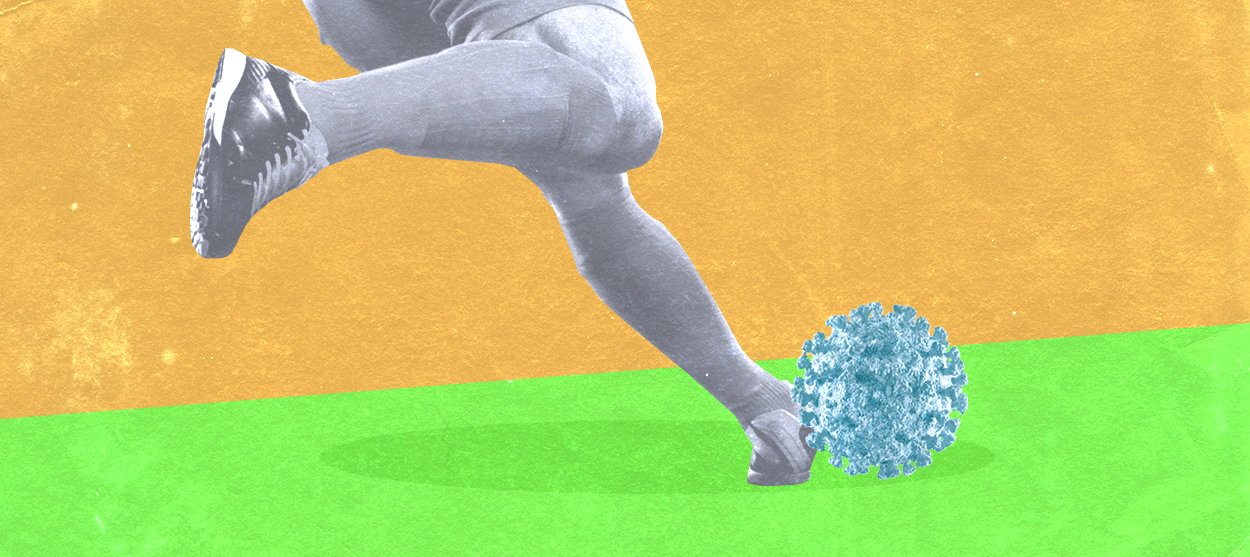 Sports reveal how much America is trailing the rest of the world
Sports reveal how much America is trailing the rest of the worldThe Explainer MLS and other American leagues are stumbling through their pandemic restart plans
